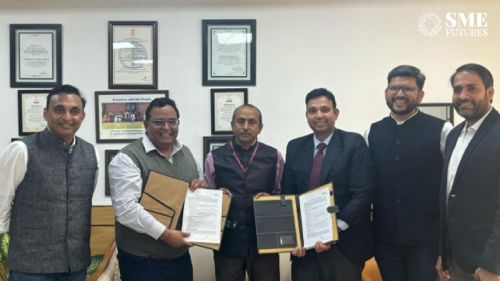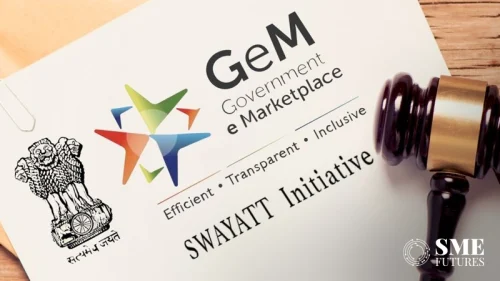The Inclusive Finance India (IFI) Report 2021 released jointly by NITI Aayog, SIDBI and World Bank, observed that banks gained an additional share of 11.6 per cent, while Small Finance Banks (SFBs) and Micro Finance Institutes (MFIs) lost almost 5 per cent and 6 per cent respectively for the total gross loans in the micro-credit lending space.
The IFI report 2021 highlights how the pandemic has affected the income and finances of underserved individuals, businesses, and low-income households, while also stating the challenges faced by financial institutions that cater to them.
It also underlines that MFIs faced major setbacks in profitability due to the impact of the pandemic. The Return on Assets decreased from 3 per cent to 0.67 per cent while Return on Equity declined from 13.17 per cent in FY 2020 to 1.44 per cent in FY 2021 for MFIs.
However, there were significant improvements in average cost for funds which declined from 11.9 per cent in FY 2020 to 10.9 per cent in FY 2021. MFIs also witnessed a net reduction in operating costs compared to 2020 by more than 50 basis points.
The report also observed an increase in contactless and Aadhaar-based payments by 10 per cent in 2020, the public retention of currency also increased by 22 per cent.
It also brings to light the fact that women face relatively higher barriers to using financial services at the bank or the agent point due to their limited mobility and counter-productive gender-based norms, thereby stressing the need for financial institutions to help women overcome these barriers in the form of Digital Financial Services (DFS), financial literacy as well as Direct Benefit Transfer (DBT) ecosystem.
The report was released at the two-day 18th Inclusive Finance India Summit hosted in New Delhi by Access Development Services, a national livelihoods support organisation. Amitabh Kant, CEO, NITI Aayog also recognised individuals and institutions at the Inclusive Finance India Awards 2021 for their exemplary and transformative role of financial inclusion by providing accessible and affordable financial services to the poor, marginalised, and weaker section of the society.
Speaking at the Inclusive Finance India Summit 2021, Vipin Sharma, CEO, ACCESS Development Services said, “India clocked close to 150 million digital transactions in FY–2021. A record 43.94 crore have opened Jan Dhan Accounts. In pursuit of ensuring access, let us not forget usage and quality of services as we aim towards universal financial inclusion. Vulnerable customer groups, such as women and the rural population, often have comparatively low literacy rates and lack exposure and access to technology. Women are also typically secondary users of mobile phones, late adopters of technology and are often excluded from having official government IDs. This year, in the Inclusive Finance India Summit, as we deliberate on strategies and action plans of building back better, let us work towards ensuring we leave no one behind and strive for a truly inclusive financial system.”
Sharing his insights at the award ceremony, Amitabh Kant, CEO, NITI Aayog said, “Financial inclusion in the last seven years has advanced in the country, from very low levels of inclusion to among the top countries. Jan Dhan has been a critical campaign in bringing 43.94 Crore beneficiaries into the fold of formal finance. Now the Government is ambitiously planning to leverage these accounts to deliver many more benefits just beyond emergency transfers. Inclusive Finance India Campaign of ACCESS Development Services has been instrumental in constantly pushing the need of universalising financial inclusion in India. I am happy that NITI Aayog has been co-host to this initiative for the last 5 years.”











